Rihs' remedy for the cycling blues - Part two
"From innocence to more sense": BMC Racing's tailored approach
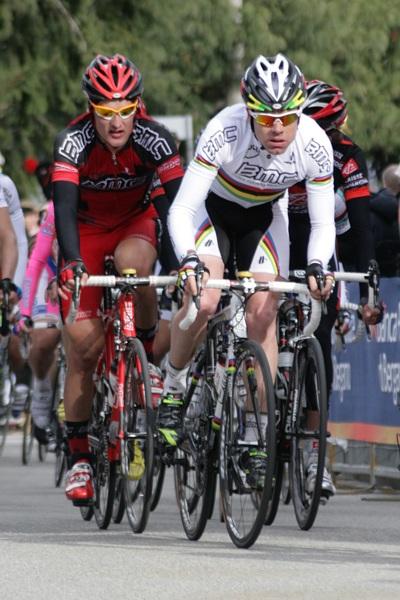
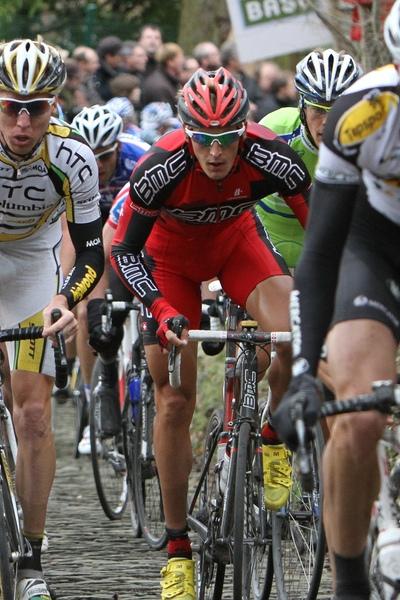
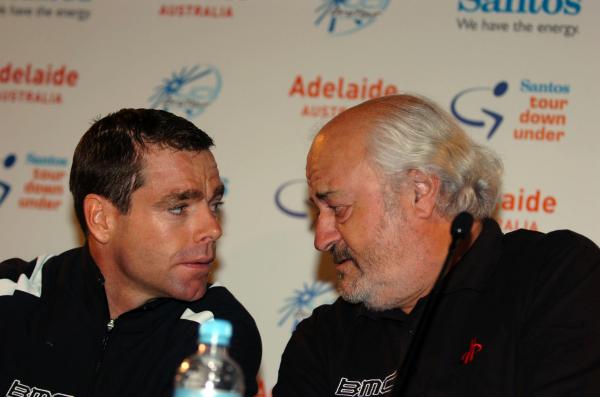
At the time of Phonak's dissolution, Andy Rihs stated that he 'no longer believed in clean cycling' and wouldn't return to the highest echelon of the sport. In 2010 he's back in the big time, returning with the vigour and passion not seen since he celebrated with Floyd Landis on the Champs Élysées in July 2006.
His experience with the team was even the subject of a European Social Survey research project, conducted soon after Landis' positive test for synthetic testosterone. The questionnaire included the statement: "Generally speaking, would you say that most people can be trusted, or that you can’t be too careful in dealing with people?"
But partnered by former USA Cycling chief and Lance Armstrong mentor Jim Ochowicz, plus experienced directeur sportif John Lelangue at the helm of daily operations, Rihs has new found faith in the sport and the future of the team he supports. And speaking with the man at the wheel, you get the feeling that his belief is more than just a commercial reality - although that's still a concern, of course.
A new chapter
The obvious question needs to be asked: Why the re-discovered passion for professional cycling from a man who swore he wouldn't involve himself in it after his previous experience? Rihs believes it's about a change in culture, his answer reflecting why he has given the whole pro team thing another shot.
"You learn lessons, step by step; from innocence to more sense. This is a very important question that goes on all the time because you have no guarantees of anything but at least we can try to do the utmost to help out in that area.
"Can you compare 2003, '04 and '05 with today? It has really drastically changed. You have to have open eyes and optimism as a human being otherwise you wouldn't be of interest. But we have to be more aware of all this stuff and we put that in structures - medical structures, reporting structures, control structures - you have to do that.
Get The Leadout Newsletter
The latest race content, interviews, features, reviews and expert buying guides, direct to your inbox!
"I remember when they said, 'We don't want to have any doping in the teams' and riders had to sign an ethical code [before the 2007 Tour de France]. If they did that they would get a permit [to race]. Five years ago it was very hard to find somebody who was ready to sign something like this. Today, everybody signs it - there's no discussion any more. This was a break of culture."
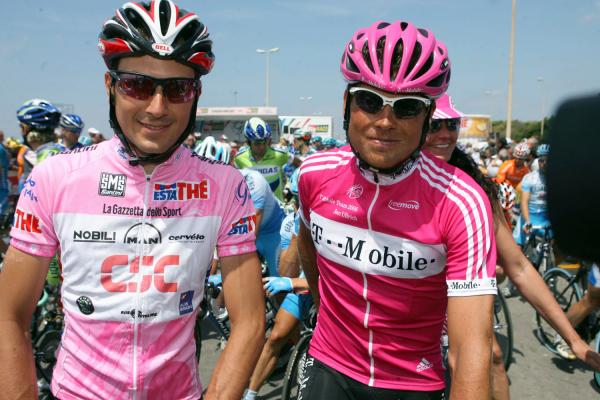
Rihs has felt the effects of doping controversies firsthand during the crazy days of 2006 and '07, when the likes of Jan Ullrich, Ivan Basso, Alexandre Vinokourov and Michael Rasmussen - Tour de France stars the world over - were implicated and in most cases banned for their involvement in doping practices.
And, like his previous statement, the BMC boss believes lessons have been learnt. "I think cycling has now established a base which has the best proactive control over doping and it remains the most controlled sport in the world by a factor of 100,000," he says.
"I think that the International Cycling Union (UCI) and anti-doping authorities have to do things proactively these days, not just reacting, because one of the biggest problems with sponsors is doping. If your sport is in doping the sponsor has a problem being able to communicate with his world.
"Say you are a bank and you decide that the power of cycling is so great that you have to go with that [as a promotional tool] but the moment there's one case of doping they don't know how to react. People are telling us about it, the media is questioning... So the sponsor says, 'We have nothing to do with it because it's not us'. This doesn't work.
"The best thing is to avoid it or to minimise it and ensure that it's not systematic or symptomatic for the sport. Then you can find sponsors again," adds Rihs.
"This happened in cycling; I think it has a very strong system but no guarantees at all. You can never win the war against doping - it will continue with human nature - and there are so many medications that nobody knows about."
Rihs uses Germany as a prime example of the economic impact doping can have on cycling. "Cycling has learnt a lesson because it lost a lot of business - Germany is basically dead in cycling at the moment because the German people have been so disappointed, especially the media," he says.
"There's no [major German] race any more and the German riders are very good - guys like Greipel and Burghardt - and soon you'll have another big guy who wins it [the Tour]. But it kills the whole sponsorship thing - sponsors stop when the media continues to talk about it because you have no more instrument for transportation [of a marketing message]."
The road to the ProTour and beyond
Whilst BMC Racing remains a Professional Continental outfit, the presence of Cadel Evans, George Hincapie, Alessandro Ballan and Karsten Kroon could see it receive invitations to the year's biggest races. According to Rihs, the team isn't far from a ProTour squad already.
"A ProTour team requires a certain size - how many riders, doctors, etc you need to have. This ensures a certain quality. In Pro Continental you need less - but if you compare our team now, there's not much difference," says Rihs. "At the moment we're not quite at that [ProTour] level. If I made a ranking of all the budgets from all the teams, we are somewhere in the top six teams."
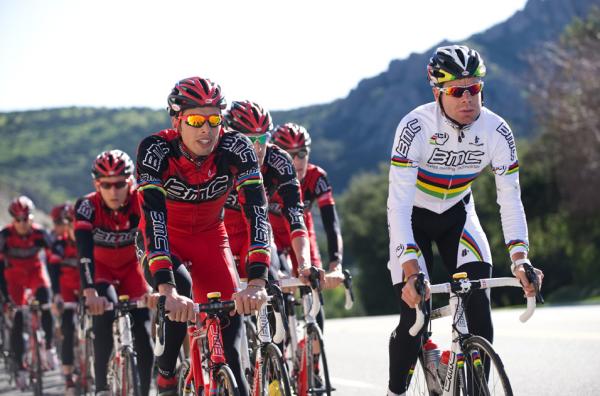
The team's funding is directly influenced by the fortunes of the BMC company, an area where Rihs says he intends to develop and grow in the future. He uses the lessons learnt whilst building Phonak Hearing Systems to ensure the correct direction of a brand for which he feels an obvious passion.
He sums up the commercial relationship between the company and team in one sentence: "The logic then is that you must afford a certain level of promotion - if you don't afford it then you'll never develop an image."
Image aside, Rihs expresses his desire to become a serious world beater in the bicycle industry - a company that rivals the likes of Giant and Specialized in its reputation and reach. We believe that if you increasingly turn a vision into plans, actions and processes then you will be number one in the world," says Rihs.
"When we started we were number 200, but with a better product and the ideas to make it better, smarter and to help people [more] we became successful. I was overseeing that and I pushed it and pushed it... the advantage of that is you also have a clear vision for your many employees.
"This is the same thing I've done with the bike. I say, 'We can make bicycles much better'. Bicycles are more of less all made in the same world factory and most of the engineers are more or less thinking the same in terms of design. How can you make a better bicycle? Or a smarter, more engineered bicycle?
"You have to take the control of these, step-by-step, which is what we are doing. I'm sure we are continuously making progress in that direction so that the BMC brand becomes a more unique, advanced brand with higher quality elements.
I saw that there was a lot of room to grow and we've seen that already because we have grown where others maybe haven't," continues Rihs. "The vision is very clear: we have to have a certain size to be part of the game. If you are too small, a boutique, that's fine. But to become a world player with a global business you have to have a certain size and economy of scale.
"We're working hard to get this because you can then afford the latest technology to make the bike much better. We did the same thing in hearing aids."
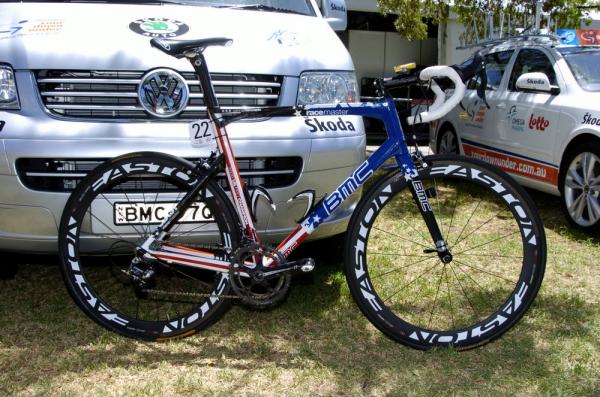
One aspect of cycling's march into the 21st century that will aid Rihs in making the desired progress for his company is the globalisation of cycling, which he believes can continue, despite some obvious challenges. "I'm convinced about the globalisation of cycling. I've seen it developing over the years in America and funnily enough, in the Middle East - the Tours of Qatar and Oman - which is a good thing.
"On the Asian side, I don't know who can really take the lead there. Japan tries but maybe it's more of a track [cycling] country. Maybe China is on the way to coming along with something in certain areas... but I'm sure it will come.
"Today you play soccer all over the world and I'm sure cycling can develop the same way. At the moment the UCI has an important function to make sure it provides good organisation of races in terms of quality and the like. I think it's a big job for the UCI, but I believe in it."